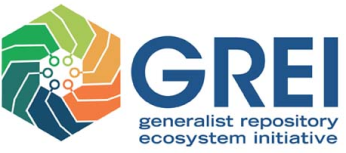Search the repository
Recently published
134233 results
- CollectionDatasets concerning the Beiuș High School (1828-1928)This collection contains four datasets concerning the Beiuș High School during its first century of operation (1828-1928). On the one hand, two datasets present the students and the teachers and their extensive social background. On the other hand, two datasets geographically annotate the biographical information regarding the students and the teachers. Supported publications: Forthcoming
- Geographical annotations with information concerning the teachers of the Beiuș High School (1829-1928)This dataset contains geographical annotations with information concerning the teachers employed the Beiuș High School between 1829 and 1928. An 1856 map of the Habsburg Empire (General-Karte Der Oesterreichischen Monarchie von J. Scheda) was used to illustrate the birthplace, primary, secondary, and superior education of the 144 teachers employed at the high school. Supported publications: Forthcoming
- Geographical annotations with the birthplace of the students of the Beiuș High School (1829-1928)This dataset contains geographical annotations with the birthplace of the students who attended the Beiuș High School between 1829 and 1928. The dataset was constructed, as in the case of the main dataset with the students, based on student files, lists of students, and other primary documents. The geographical coordinates of 7,133 birthplaces were established. Supported publications: Forthcoming
- Dataset for 'An intranasal adenoviral vectored vaccine protects against highly pathogenic avian influenza H5N1 in naïve and antigen-experienced animals'This dataset contains the raw data supporting all main and supplementary figures used in the manuscript "An intranasal adenoviral-vectored vaccine protects against highly pathogenic avian influenza H5N1 in naïve and antigen-experienced animals" intended for publishing in Cell Reports Medicine. The dataset includes antibody and T-cell responses in naïve and vaccine-immunized mice as well as antibody responses in hamsters after intranasal ChAd-vectored H5 vaccination, along with viral titers following H5N1 challenge.
- Spheroid growth assays as a function of glutamine, pyruvate, biotin and FBXW7.We hypothesized that 293T spheroids could model proliferation as a result of nutrient (glutamine, pyruvate, biotin) and genetic (FBXW7 KO) perturbation. Our data shows that in the absence of glutamine, pyruvate rescues proliferation only upon biotin supplementation and FBXW7 expression.
- Ecological Security Pattern ConstructionEcological Security Pattern Construction data
- MOLECULAR-CELL-D-24-00245_Xiaojun RenThe dataset contains original gel images and microscopy data
- SRJThis dataset contains the qualitative coding architecture and frequency matrices used to identify the "32x Ethical Density Gap" between classical and modern leadership scripts. The data explores Interrogative Literacy—a cognitive competency for auditing leadership motives, methods, and consequences.
- Expert-Labeled Clinical Dataset for Anemia DetectionThis dataset contains 364 clinically collected samples comprising anemia and non-anemia cases, obtained from patients at Atapara General Hospital. The data were collected under real clinical conditions and reflect routine diagnostic practices in a hospital setting. All samples were carefully observed, verified, and labeled by an expert physician, Dr. Mohammad Mohiuddin Alam, ensuring the reliability and medical correctness of the annotations. The labeling process followed standard clinical assessment criteria, minimizing noise and misclassification in the dataset. The dataset includes two primary classes: • Anemia • Non-anemia Each sample represents an individual patient record and was anonymized prior to inclusion to protect patient privacy. No personally identifiable information is included in the dataset, and ethical considerations were strictly maintained during data collection and preparation.
- TEM images for article "Study and Characterization of the Gold Nanoparticle’s Formation Mechanism by re-Irradiation of Linear Bromide-Induced Gold Nanoparticle Chains"This is the full set of TEM images used to build statystical distributions of Au NP size in the paper "Study and Characterization of the Gold Nanoparticle’s Formation Mechanism by re-Irradiation of Linear Bromide-Induced Gold Nanoparticle Chains"
1

The Generalist Repository Ecosystem Initiative
Elsevier's Mendeley Data repository is a participating member of the National Institutes of Health (NIH) Office of Data Science Strategy (ODSS) GREI project. The GREI includes seven established generalist repositories funded by the NIH to work together to establish consistent metadata, develop use cases for data sharing, train and educate researchers on FAIR data and the importance of data sharing, and more.
Find out moreWhy use Mendeley Data?
Make your research data citable
Unique DOIs and easy-to-use citation tools make it easy to refer to your research data.
Share data privately or publicly
Securely share your data with colleagues and co-authors before publication.
Ensure long-term data storage
Your data is archived for as long as you need it by Data Archiving & Networked Services.
Keep access to all versions
Mendeley Data supports versioning, making longitudinal studies easier.
The Mendeley Data communal data repository is powered by Digital Commons Data.
Digital Commons Data provides everything that your institution will need to launch and maintain a successful Research Data Management program at scale.
Find out more